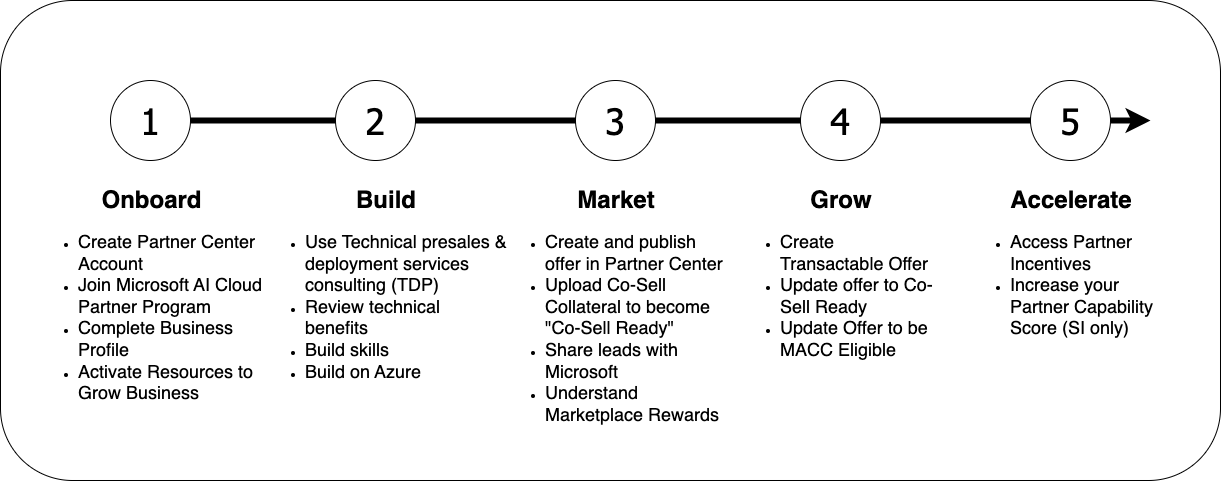Microsoft Partner Onboarding Academy
Welcome to the Microsoft Partner Onboarding Academy, your gateway to your partner journey.🔗
This Academy will walk you through the steps necessary to get started and prosper as a Microsoft Partner.
This content has migrated to our new Level Up platform. To ensure you get the most recent information, please use this link and the code
FIWJ-WCUWto register:
What is a Partner?
There are multiple types of partnerships with Microsoft:
- Engineering Partnership — Launching a joint technical project
- Co-Sell / GTM — Primary focus of this Academy
Why become a Microsoft Partner?
- Access to Resources and Support
- Accelerate Business Growth
- Reach more customers and expand into new markets
- Reward your success and help you drive even greater profitability with incentive programs
- Sell the full range of Microsoft cloud services through the Cloud Solution Provider program.
- For every $1 of Microsoft revenue, Services partners make $7 and ISV’s make $10
- Access to Microsoft’s Commercial Marketplace
- Gain visibility to millions of Microsoft customers
- Simplify procurement while helping customers decrement MACC with eligible partner solutions
The Microsoft Partner Onboarding Academy’s Modules are organized into sections which reflect the typical partner journey:

- Onboard: This is the first step towards becoming a Microsoft Partner. This will give you entry into Partner Center, which is how and where you can access all of the Partner benefits.
- Build: Learn about Azure services and build your Azure skills.
- NOTE: Sometimes this step is done prior to onboarding.
- Market: Now that you have access to Partner Center and a solution on Azure, the next step is to create an offer in the Azure Marketplace. Learn how to share leads and understand the rewards available to you.
- Grow: Once you understand the Marketplace, start to grow your business through other Co-Sell incentives.
- Accelerate: Take your partnership to the next level by fully utilizing Partner Incentives.
Key Concepts
NOTE: Microsoft uses many acronyms. Use this page to understand the most common acronyms.
Below are key concepts and definitions you’ll see used in this Academy:
- Partner Center: A portal for Partners to manage their account, offers, customers, and billing.
- Microsoft Commercial Marketplace: Where customers discover and purchase your solutions.
- Offer: Software or service that the customer purchases (i.e., solutions).
- Co-Sell: Selling with Microsoft.
Partner types:
- ISV: Independent Software Vendor
- Use this page to see some ISV specific benefits and programs
- SI: Systems Integrator
- Channel: Scale Solution Providers, Managed Service Providers, Hosters, Indirect Providers, and Telecos
How does a Partner get started?
The first step is to start the onboarding process.
FAQ
Have questions not addressed here? See our FAQ.
Additional resources
- Six easy steps to becoming a Microsoft Partner
- Carve Partners: Partner Center Guide for ISVs
- Mastering the Marketplace
- Journey Maps: Provides the vision, key milestones, and details to help you navigate the transformational changes in Microsoft programs.
- Operational Readiness: Provides the “how to”, playbooks, and detailed components
- Community Calls: Provides partners an opportunity to connect with the SMEs and to ask questions